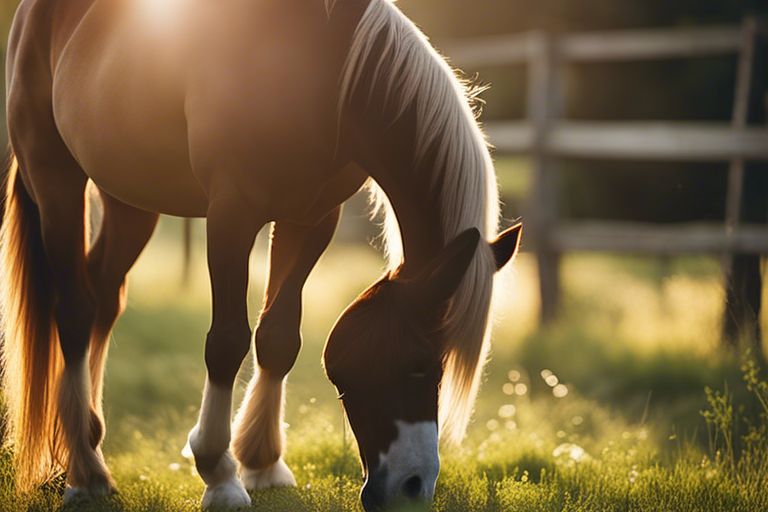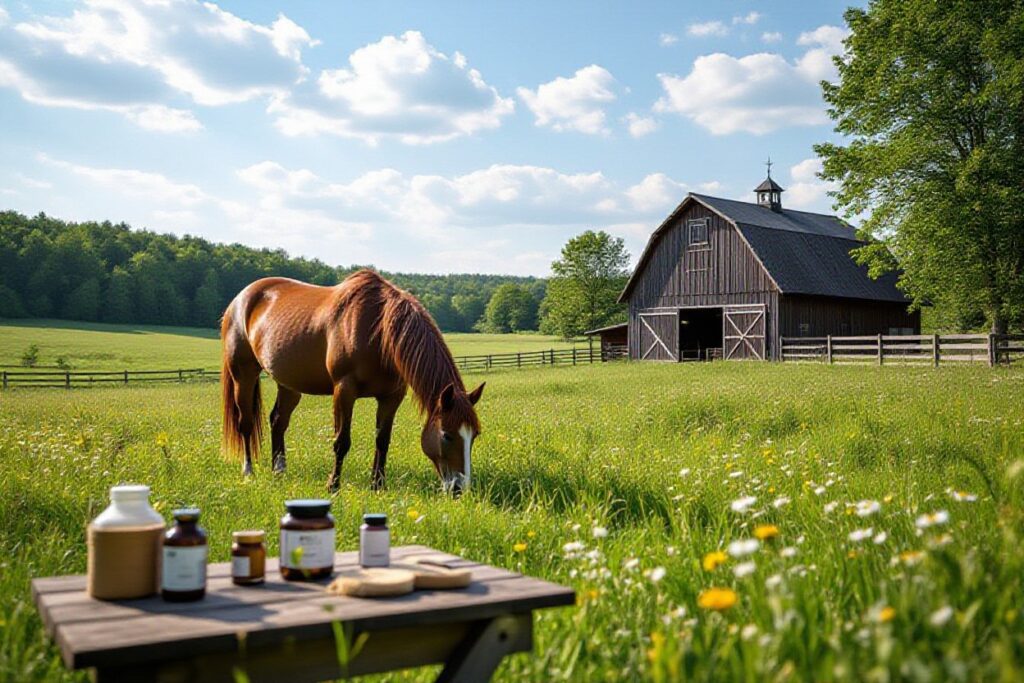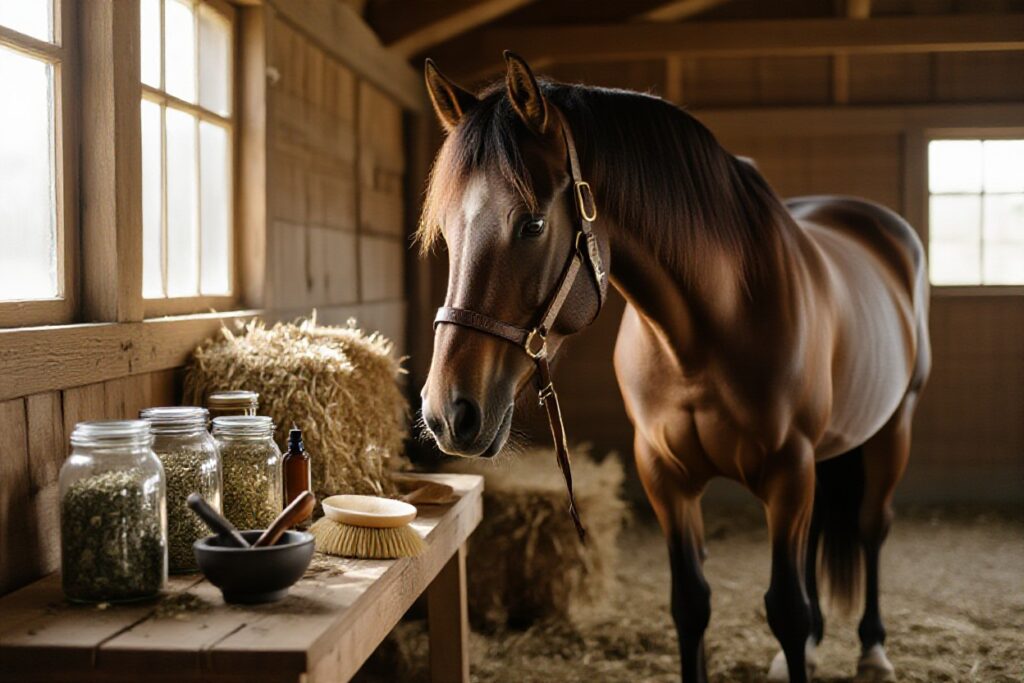It’s time to investigate into the world of natural horse care practices and discover a whole new way of nurturing your beloved equine companion. In this insightful guide, you will learn about beneficial herbal remedies, holistic grooming techniques, and low-stress handling methods that can revolutionize your horse’s well-being. Embrace a gentler, more sustainable approach to horse care and witness the transformation in your horse’s health and happiness.
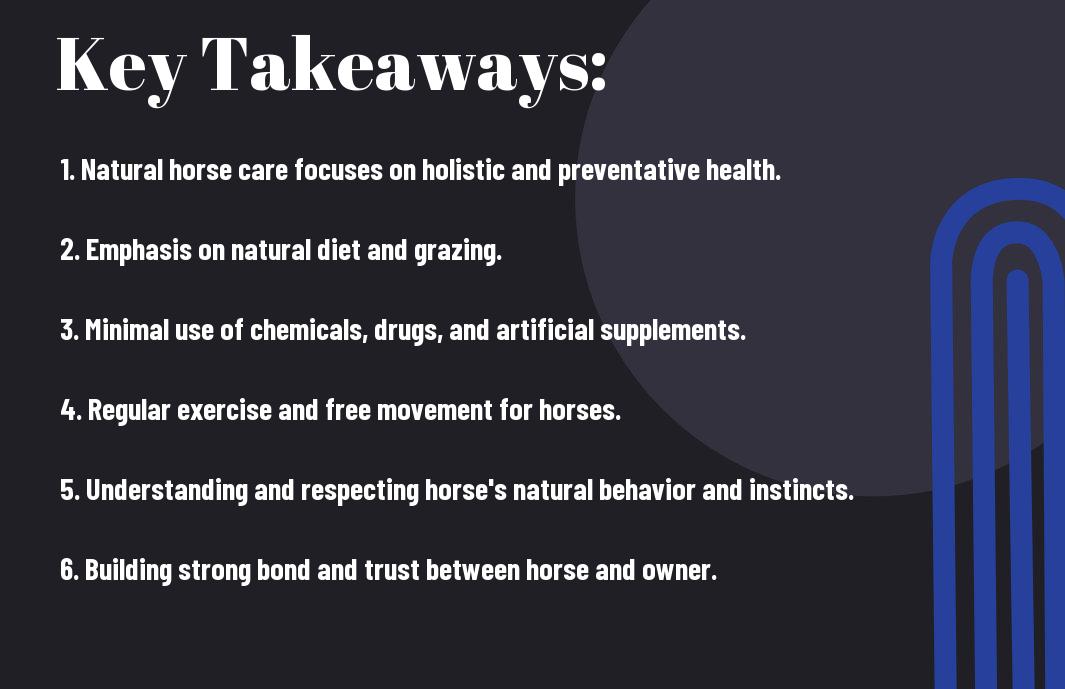
The Importance of Natural Horse Care
The care you provide for your horse plays a significant role in their overall well-being and quality of life. By opting for natural horse care practices, you can ensure that your horse maintains optimal health, both physically and mentally.
The Risks of Conventional Horse Care Methods
Risks come with conventional horse care methods like overuse of medications, harsh training techniques, and restrictive living conditions. These practices can lead to a range of issues such as digestive problems, behavioral issues, and compromised immune function in your horse.
The Benefits of Natural Horse Care for Horse Health
Conventional horse care methods often focus on quick fixes rather than addressing the root cause of health issues. In contrast, natural horse care emphasizes a holistic approach that considers your horse’s diet, exercise, living environment, and emotional well-being. This approach can lead to significant improvements in your horse’s health and vitality over time.
Care that prioritizes natural practices can result in stronger hooves, a shinier coat, improved digestion, and a more balanced temperament in your horse. By choosing natural horse care, you are investing in your horse’s long-term health and happiness.
Nutrition and Diet
Little compares to the importance of proper nutrition and diet when it comes to your horse’s overall well-being and health. Just like humans, horses require a balanced diet that provides them with all the crucial nutrients they need to thrive. Let’s investigate into some key aspects of natural horse care practices related to nutrition and diet.
The Role of Forage in a Horse’s Diet
For horses, forage should be the cornerstone of their diet. Pasture and hay should make up the majority of what your horse consumes. Forage provides crucial fiber, which is crucial for healthy digestion and maintaining gut health. It also mimics the natural grazing behavior of horses in the wild, keeping them mentally stimulated and physically satisfied.
Supplements and Vitamins: What’s Necessary and What’s Not
For additional nutrients, supplements and vitamins may be necessary for your horse, especially if they have specific dietary deficiencies or health issues. However, it’s crucial to consult with a veterinarian or equine nutritionist before adding any supplements to your horse’s diet. Too much of certain vitamins and minerals can be harmful and lead to imbalances in your horse’s overall health.
To ensure your horse receives the required nutrients, focus on providing a well-rounded diet primarily consisting of high-quality forage. Supplement only when necessary and under the guidance of a professional.
Avoiding Common Dietary Mistakes
Whats crucial is to avoid common dietary mistakes that can impact your horse’s health negatively. Feeding too many treats, overfeeding grains, or sudden changes in diet can lead to digestive issues, colic, or even laminitis. Pay attention to your horse’s body condition, behavior, and overall health to ensure they are receiving the right nutrition.
It is crucial to remember that your horse’s diet plays a significant role in their well-being. By focusing on providing a natural, balanced diet, you can help your horse stay healthy, happy, and full of vitality.
Hoof Care and Maintenance
After ensuring proper nutrition and regular exercise for your horse, another imperative aspect of their care is maintaining healthy hooves. The condition of a horse’s hooves directly impacts their overall well-being and performance. By understanding the anatomy of a horse’s hoof, you can better appreciate the importance of proper hoof care.
The Anatomy of a Horse’s Hoof
With four primary parts – the wall, sole, frog, and bars – a horse’s hoof is a complex structure designed to support the animal’s weight and absorb shock. The hoof wall is the hard outer covering that protects the sensitive internal structures. Beneath the wall lies the sole, which provides additional protection and support. The frog, located at the center of the hoof, aids in circulation and shock absorption. Lastly, the bars help support the hoof wall and provide stability.
Natural Trimming Methods vs. Conventional Shoeing
With the increasing popularity of natural horsemanship, many horse owners are exploring alternatives to traditional shoeing methods. **Natural trimming methods**, which involve regular maintenance and balancing of the hoof without shoes, have gained recognition for promoting healthier hooves and allowing for more natural movement. Conversely, conventional shoeing, which involves fitting metal shoes to the hooves, has been a common practice but is now being reassessed due to potential drawbacks.
Care for your horse’s hooves by consulting with a professional farrier who is knowledgeable in both natural trimming and conventional shoeing methods. They can help you decide which approach is most suitable for your horse based on their individual needs and lifestyle.
How to Identify Hoof Problems Early
Shoeing is an imperative part of hoof care, but it’s also crucial to be able to identify potential problems early on. **Regularly inspecting your horse’s hooves** can help you spot issues such as cracks, thrush, abscesses, or irregular wear patterns. **Early detection** can prevent more significant problems from developing and ensure your horse’s comfort and soundness. Understanding the signs of common hoof problems will allow you to take prompt action and work with your veterinarian or farrier to address any issues effectively.
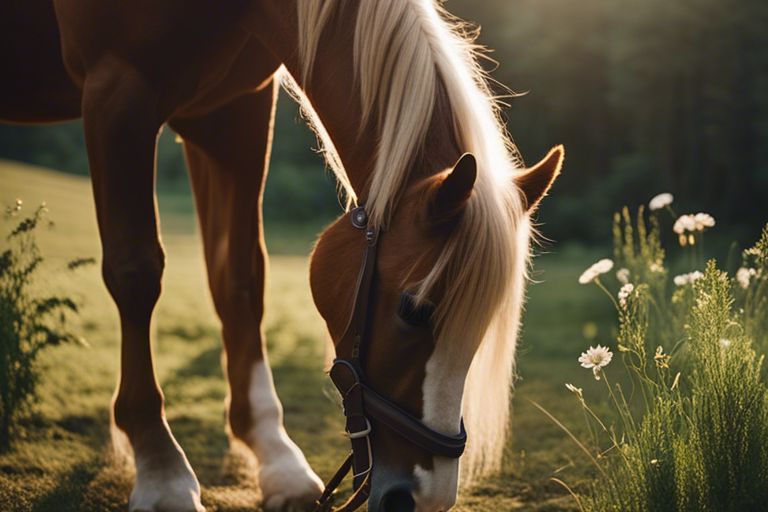
Living Environment and Shelter
Creating a Safe and Comfortable Living Space
Shelter is one of the most crucial aspects of your horse’s living environment. Providing a safe and comfortable shelter is vital to ensuring your horse’s well-being. Whether it’s a stable, run-in shed, or a combination of both, make sure the shelter offers protection from harsh weather conditions like rain, wind, and extreme heat or cold.
The Importance of Socialization and Companionship
To thrive and maintain good mental health, horses need socialization and companionship. They are herd animals by nature and feel most secure and content when they have the company of other horses. Having a suitable companion can prevent boredom, reduce stress, and even help with behavioral issues.
It is recommended to keep horses in groups whenever possible to allow for natural social interactions. If keeping your horse alone is unavoidable, consider providing them with a companion animal like a goat, pony, or even a friendly donkey to fulfill their social needs.
Natural Ways to Control Pests and Parasites
The presence of pests and parasites can significantly impact your horse’s health and well-being. Implementing natural methods to control these issues is not only beneficial for your horse but also for the environment. Using fly repellent plants, maintaining clean surroundings, and utilizing natural predators like parasitic wasps can help manage pests in a sustainable way.
By incorporating these natural horse care practices into your horse’s living environment, you can promote their overall health and happiness while minimizing the use of harsh chemicals and artificial interventions. Bear in mind, creating a safe, stimulating, and natural living space for your horse is key to their well-being.
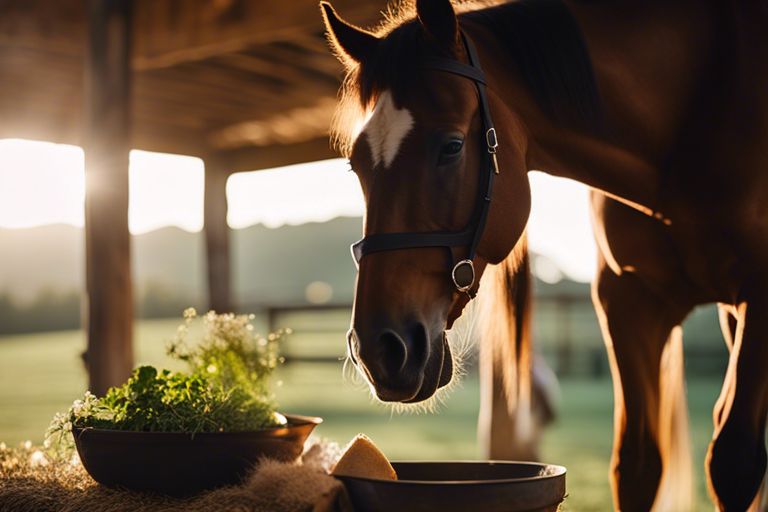
Health and Wellness
Natural Remedies for Common Ailments
For natural remedies for common ailments in horses, there are several effective options that can help maintain your horse’s health and wellness. **Essential oils**, such as lavender or eucalyptus, can be used in aromatherapy to alleviate stress and promote relaxation in your horse. **Herbal supplements**, like chamomile or ginger, can aid in digestion and soothe gastrointestinal discomfort. Additionally, **apple cider vinegar** is known for its antibacterial properties and can be added to your horse’s water to promote overall health.
The Role of Acupuncture and Chiropractic Care
Health and wellness for your horse can also benefit from acupuncture and chiropractic care. **Acupuncture** involves inserting thin needles into specific points on your horse’s body to stimulate nerves, muscles, and connective tissue. This practice can help relieve pain, improve circulation, and boost your horse’s immune system. **Chiropractic care** focuses on aligning the musculoskeletal system to enhance mobility, alleviate pain, and improve overall well-being.
The Role of Acupuncture and Chiropractic Care: Acupuncture and chiropractic care can be especially beneficial for horses that engage in strenuous physical activity or those experiencing musculoskeletal issues. These alternative therapies can complement traditional veterinary care and help your horse maintain optimal health and wellness.
How to Monitor Your Horse’s Health
Horses rely on their owners to observe and address any changes in their health. **Regular physical examinations** including checking your horse’s eyes, ears, nose, teeth, and body condition are crucial. **Monitoring vital signs** such as temperature, pulse, and respiration can provide valuable insights into your horse’s well-being. **Observing behavior** for any signs of distress, lethargy, or changes in appetite can also indicate potential health issues.
How to Monitor Your Horse’s Health: Keeping a health journal for your horse can help track any changes, allowing you to promptly address concerns with your veterinarian. Don’t hesitate to seek professional advice if you notice any unusual symptoms or behaviors in your horse.
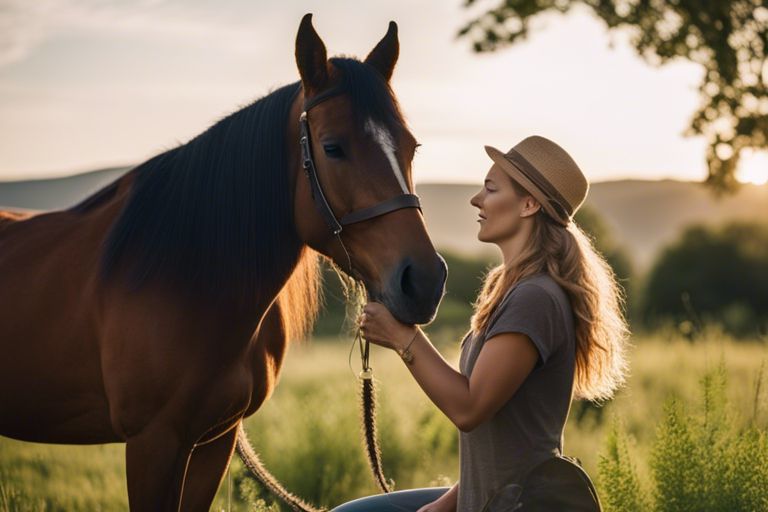
Grooming and Hygiene
Many horse owners underestimate the importance of regular grooming and hygiene practices. Not only does grooming keep your horse looking clean and presentable, but it also plays a vital role in maintaining their overall health and well-being.
The Importance of Regular Grooming
On a daily basis, grooming allows you to check for any signs of injury, skin issues, or abnormalities. It helps distribute natural oils in the coat, improving its shine and health. Regular grooming also promotes bonding between you and your horse, as it is a calming and enjoyable activity for both of you.
Natural Grooming Products and Techniques
An necessary aspect of natural horse care is using grooming products and techniques that are gentle on your horse’s skin and the environment. **Natural grooming products** made from ingredients such as aloe vera, coconut oil, or neem oil can help maintain a healthy coat without harsh chemicals. Techniques like **dry brushing** can remove dirt and distribute oils without the need for frequent bathing, which can strip the coat of its natural oils.
Regular grooming not only keeps your horse looking their best but also allows you to monitor their skin health closely.
How to Identify Skin Problems and Irritations
By regularly grooming your horse, you can **identify** any **skin problems** or irritations early on. Look for signs of **dry patches**, **flakiness**, **hair loss**, or **redness**. These could be indicators of **skin conditions** like **dermatitis**, **fungal infections**, or **allergies**. Addressing these issues promptly can prevent them from worsening and causing discomfort to your horse.
Hygiene
Irritations If you notice any skin irritations or abnormalities during grooming, it is crucial to address them promptly. **Monitor** the affected area closely and consult with your veterinarian if the issue persists or worsens. Maintaining good hygiene practices, such as keeping grooming tools clean and regularly washing saddle pads and blankets, can also help prevent skin problems in your horse.
Conclusion
Upon reflecting on the exploration of natural horse care practices, you have gained valuable insight into alternative methods for promoting the well-being of your equine companion. By learning about techniques such as natural hoof care, herbal remedies, and pasture management, you can enhance the health and happiness of your horse in a more holistic way.
Remember that each horse is unique, and it is important to tailor your care approach to suit their individual needs. By incorporating natural practices into your horse care routine, you can build a stronger bond with your horse while also contributing to their overall welfare and quality of life. Embracing these holistic methods can lead to a deeper understanding and connection with your beloved equine friend.
Q: What is natural horse care?
A: Natural horse care refers to holistic practices that prioritize the health and well-being of horses through natural and non-invasive methods, focusing on their physical, emotional, and mental aspects.
Q: What are some examples of natural horse care practices?
A: Examples of natural horse care practices include providing a natural diet, allowing for ample pasture turnout, using natural remedies such as herbs and important oils, and incorporating bodywork and alternative therapies like acupuncture or chiropractic care.
Q: Why choose natural horse care over traditional methods?
A: Natural horse care is often preferred over traditional methods as it promotes overall health and wellness, minimizes the use of chemicals and medications, and considers the horse as a whole being rather than just addressing individual symptoms.
Q: How can I transition my horse to a natural care routine?
A: To transition your horse to a natural care routine, start by gradually introducing changes such as transitioning to a more natural diet, providing ample turnout, incorporating holistic therapies, and consulting with a holistic veterinarian for guidance.
Q: Are there any potential challenges to practicing natural horse care?
A: Some potential challenges of practicing natural horse care may include finding qualified holistic practitioners in your area, the cost of certain natural remedies or therapies, and the need for patience and commitment to see results as natural healing methods may take time.
